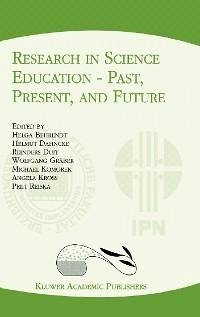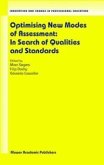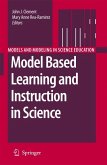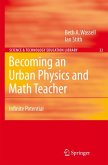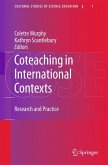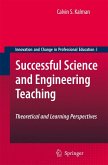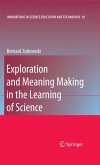Research in Science Education - Past, Present, and Future (eBook, PDF)
Redaktion: Behrendt, Helga; Reiska, Priit; Kross, Angela; Komorek, Michael; Gräber, Wolfgang; Duit, Reinders; Dahncke, Helmut
73,95 €
73,95 €
inkl. MwSt.
Sofort per Download lieferbar

37 °P sammeln
73,95 €
Als Download kaufen

73,95 €
inkl. MwSt.
Sofort per Download lieferbar

37 °P sammeln
Jetzt verschenken
Alle Infos zum eBook verschenken
73,95 €
inkl. MwSt.
Sofort per Download lieferbar
Alle Infos zum eBook verschenken

37 °P sammeln
Research in Science Education - Past, Present, and Future (eBook, PDF)
Redaktion: Behrendt, Helga; Reiska, Priit; Kross, Angela; Komorek, Michael; Gräber, Wolfgang; Duit, Reinders; Dahncke, Helmut
- Format: PDF
- Merkliste
- Auf die Merkliste
- Bewerten Bewerten
- Teilen
- Produkt teilen
- Produkterinnerung
- Produkterinnerung

Bitte loggen Sie sich zunächst in Ihr Kundenkonto ein oder registrieren Sie sich bei
bücher.de, um das eBook-Abo tolino select nutzen zu können.
Hier können Sie sich einloggen
Hier können Sie sich einloggen
Sie sind bereits eingeloggt. Klicken Sie auf 2. tolino select Abo, um fortzufahren.

Bitte loggen Sie sich zunächst in Ihr Kundenkonto ein oder registrieren Sie sich bei bücher.de, um das eBook-Abo tolino select nutzen zu können.
This truly international volume includes a selection of contributions to the Second Conference of the European Science Education Research Association (Kiel, Sept. 1999). It provides a state-of-the-art examination of science education research in Europe, discusses views and visions of science education research, deals with research on scientific literacy, on students' and teachers' conceptions, on conceptual change, and on instructional media and lab work.
- Geräte: PC
- ohne Kopierschutz
- eBook Hilfe
- Größe: 13.21MB
Andere Kunden interessierten sich auch für
![Optimising New Modes of Assessment: In Search of Qualities and Standards (eBook, PDF) Optimising New Modes of Assessment: In Search of Qualities and Standards (eBook, PDF)]() Optimising New Modes of Assessment: In Search of Qualities and Standards (eBook, PDF)113,95 €
Optimising New Modes of Assessment: In Search of Qualities and Standards (eBook, PDF)113,95 €![Model Based Learning and Instruction in Science (eBook, PDF) Model Based Learning and Instruction in Science (eBook, PDF)]() Model Based Learning and Instruction in Science (eBook, PDF)73,95 €
Model Based Learning and Instruction in Science (eBook, PDF)73,95 €![Becoming an Urban Physics and Math Teacher (eBook, PDF) Becoming an Urban Physics and Math Teacher (eBook, PDF)]() Beth A. WassellBecoming an Urban Physics and Math Teacher (eBook, PDF)73,95 €
Beth A. WassellBecoming an Urban Physics and Math Teacher (eBook, PDF)73,95 €![Coteaching in International Contexts (eBook, PDF) Coteaching in International Contexts (eBook, PDF)]() Coteaching in International Contexts (eBook, PDF)113,95 €
Coteaching in International Contexts (eBook, PDF)113,95 €![Successful Science and Engineering Teaching (eBook, PDF) Successful Science and Engineering Teaching (eBook, PDF)]() Calvin S. KalmanSuccessful Science and Engineering Teaching (eBook, PDF)73,95 €
Calvin S. KalmanSuccessful Science and Engineering Teaching (eBook, PDF)73,95 €![The Inclusion of Environmental Education in Science Teacher Education (eBook, PDF) The Inclusion of Environmental Education in Science Teacher Education (eBook, PDF)]() The Inclusion of Environmental Education in Science Teacher Education (eBook, PDF)73,95 €
The Inclusion of Environmental Education in Science Teacher Education (eBook, PDF)73,95 €![Exploration and Meaning Making in the Learning of Science (eBook, PDF) Exploration and Meaning Making in the Learning of Science (eBook, PDF)]() Bernard ZubrowskiExploration and Meaning Making in the Learning of Science (eBook, PDF)113,95 €
Bernard ZubrowskiExploration and Meaning Making in the Learning of Science (eBook, PDF)113,95 €-
-
-
This truly international volume includes a selection of contributions to the Second Conference of the European Science Education Research Association (Kiel, Sept. 1999). It provides a state-of-the-art examination of science education research in Europe, discusses views and visions of science education research, deals with research on scientific literacy, on students' and teachers' conceptions, on conceptual change, and on instructional media and lab work.
Dieser Download kann aus rechtlichen Gründen nur mit Rechnungsadresse in A, B, BG, CY, CZ, D, DK, EW, E, FIN, F, GR, HR, H, IRL, I, LT, L, LR, M, NL, PL, P, R, S, SLO, SK ausgeliefert werden.
Produktdetails
- Produktdetails
- Verlag: Springer Netherlands
- Seitenzahl: 344
- Erscheinungstermin: 27. Dezember 2005
- Englisch
- ISBN-13: 9780306476396
- Artikelnr.: 37812387
- Verlag: Springer Netherlands
- Seitenzahl: 344
- Erscheinungstermin: 27. Dezember 2005
- Englisch
- ISBN-13: 9780306476396
- Artikelnr.: 37812387
- Herstellerkennzeichnung Die Herstellerinformationen sind derzeit nicht verfügbar.
Views and Visions of Science Education Research.- Science Education Researchers and Research in Transition: Issues and Policies.- Research in Science Education in Europe: Retrospect and Prospect.- Science Content as Problematic - Issues for Research.- Science Education Versus Science in the Academy: Questions - Discussion - Perspectives.- Scientific Literacy - Conceptions and Assessment.- The Assessment of Scientific Literacy in the OECD/PISA Project.- Scientific Literacy: From Theory to Practice.- Making Formative Use of a National Summative Assessment Regime.- A Comparison of STS-teaching and Traditional Physics Lessons - On the Correlation of Physics Knowledge and Taking Action.- Students' Conceptions.- On the Quantum Thinking of Physics Undergraduates.- Experiences with a Modern Course in Quantum Physics.- Learning Process Studies in the Field of Fractals.- Students' Understandings of their Internal Structure as Revealed by Drawings.- Personal Context and Continuity of Human Thought; Recurrent Themes in a Longitudinal Study of Pupils' Understanding of Scientific Phenomena.- Entities of the World and Causality in Children's Thinking.- Using Media Reports of Science Research in Pupils' Evaluation of Evidence.- Pupils' Perceptions of Science Education at Primary and Secondary School.- Teachers' Conceptions.- Teacher Professionalism and Change: Developing a Professional Self Through Reflective Assessment.- Formative Assessment Using Concept Cartoons: Initial Teacher Training in the UK.- Teaching Chemical Equilibrium in Australian and German Senior High Schools.- The Ideas of Spanish Primary Teachers on how to Develop an Understanding of Processes in Science and their Support in Textbooks.- Pre-service Elementary Teachers Constructing the Nature andLanguage of Science.- Combining Knowledge of Physics and Chemistry in Teaching: The Behaviour of a Narrow Jet of Water in the Presence of Charged Insulators.- Intuitive Rules: A Theory and its Implications to Mathematics and Science Teacher Education.- Conceptual Change - Teaching and Learning Processes.- Conceptual Change Research and the Teaching of Science.- Rhetoric and Science Education.- Development of Complexity through Dealing with Physical Qualities: One Type of Conceptual Change?.- On the Micro-structure of Analogical Reasoning: The Case of Understanding Chaotic Systems.- Role-playing, Conceptual Change, and the Learning Process: A Case Study of 7th Grade Pupils.- Concept Mapping as a Tool for Research in Science Education.- The Need for and the Role of Metacognition in Teaching and Learning the Particle Model.- Evolving Mental Models of Electric Circuits.- Two Models for a Physical Situation: the Case of Optics. Students' Difficulties, Teachers' Viewpoints and Guidelines for a ?Didactic Structure?.- The Influence of a Historically Oriented Course on the Content Knowledge of Students in Optics.- Using Everyday and Scientific Conceptions for Developing Guidelines of Teaching Microbiology.- Teaching and Learning the Concept of the Model in Secondary Schools.- Conceptual Change and Student Diversity: The Case of Volcanism at Primary School.- The Development of Prospective Teachers' Concerns about Teaching Chemistry Topics at a Macro-micro-symbolic Interface.- How to Enhance Students' Motivation and Ability to Communicate in Science Class-discourse.- How do Boys and Girls use Language in Physics Classes?.- Instructional Media and Lab Work.- Improving the Use of Instructional Illustrations in Learning Chemistry.- Computing in Stereochemistry - 2D or3D Representations?.- Learning Physics with Multimedia- and Experimental-supported Workshop Instruction.- Generating Hypotheses in Scientific Enquiry.- Using Laboratory Work for Purposeful Learning about the Practice of Science.- University Students During Practical Work: Can We Make the Learning Process Intelligible?.- Learning About Investigations - The Teacher's Role.- Point and Set Paradigms in Students' Handling of Experimental Measurements.- Beyond the Laboratory-learning Physics Using Real-life Contexts.
Views and Visions of Science Education Research.- Science Education Researchers and Research in Transition: Issues and Policies.- Research in Science Education in Europe: Retrospect and Prospect.- Science Content as Problematic - Issues for Research.- Science Education Versus Science in the Academy: Questions - Discussion - Perspectives.- Scientific Literacy - Conceptions and Assessment.- The Assessment of Scientific Literacy in the OECD/PISA Project.- Scientific Literacy: From Theory to Practice.- Making Formative Use of a National Summative Assessment Regime.- A Comparison of STS-teaching and Traditional Physics Lessons - On the Correlation of Physics Knowledge and Taking Action.- Students' Conceptions.- On the Quantum Thinking of Physics Undergraduates.- Experiences with a Modern Course in Quantum Physics.- Learning Process Studies in the Field of Fractals.- Students' Understandings of their Internal Structure as Revealed by Drawings.- Personal Context and Continuity of Human Thought; Recurrent Themes in a Longitudinal Study of Pupils' Understanding of Scientific Phenomena.- Entities of the World and Causality in Children's Thinking.- Using Media Reports of Science Research in Pupils' Evaluation of Evidence.- Pupils' Perceptions of Science Education at Primary and Secondary School.- Teachers' Conceptions.- Teacher Professionalism and Change: Developing a Professional Self Through Reflective Assessment.- Formative Assessment Using Concept Cartoons: Initial Teacher Training in the UK.- Teaching Chemical Equilibrium in Australian and German Senior High Schools.- The Ideas of Spanish Primary Teachers on how to Develop an Understanding of Processes in Science and their Support in Textbooks.- Pre-service Elementary Teachers Constructing the Nature andLanguage of Science.- Combining Knowledge of Physics and Chemistry in Teaching: The Behaviour of a Narrow Jet of Water in the Presence of Charged Insulators.- Intuitive Rules: A Theory and its Implications to Mathematics and Science Teacher Education.- Conceptual Change - Teaching and Learning Processes.- Conceptual Change Research and the Teaching of Science.- Rhetoric and Science Education.- Development of Complexity through Dealing with Physical Qualities: One Type of Conceptual Change?.- On the Micro-structure of Analogical Reasoning: The Case of Understanding Chaotic Systems.- Role-playing, Conceptual Change, and the Learning Process: A Case Study of 7th Grade Pupils.- Concept Mapping as a Tool for Research in Science Education.- The Need for and the Role of Metacognition in Teaching and Learning the Particle Model.- Evolving Mental Models of Electric Circuits.- Two Models for a Physical Situation: the Case of Optics. Students' Difficulties, Teachers' Viewpoints and Guidelines for a ?Didactic Structure?.- The Influence of a Historically Oriented Course on the Content Knowledge of Students in Optics.- Using Everyday and Scientific Conceptions for Developing Guidelines of Teaching Microbiology.- Teaching and Learning the Concept of the Model in Secondary Schools.- Conceptual Change and Student Diversity: The Case of Volcanism at Primary School.- The Development of Prospective Teachers' Concerns about Teaching Chemistry Topics at a Macro-micro-symbolic Interface.- How to Enhance Students' Motivation and Ability to Communicate in Science Class-discourse.- How do Boys and Girls use Language in Physics Classes?.- Instructional Media and Lab Work.- Improving the Use of Instructional Illustrations in Learning Chemistry.- Computing in Stereochemistry - 2D or3D Representations?.- Learning Physics with Multimedia- and Experimental-supported Workshop Instruction.- Generating Hypotheses in Scientific Enquiry.- Using Laboratory Work for Purposeful Learning about the Practice of Science.- University Students During Practical Work: Can We Make the Learning Process Intelligible?.- Learning About Investigations - The Teacher's Role.- Point and Set Paradigms in Students' Handling of Experimental Measurements.- Beyond the Laboratory-learning Physics Using Real-life Contexts.
